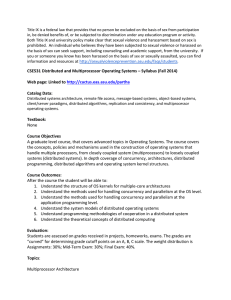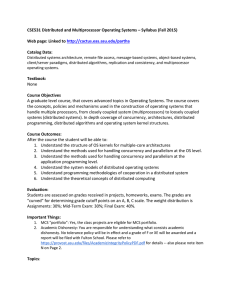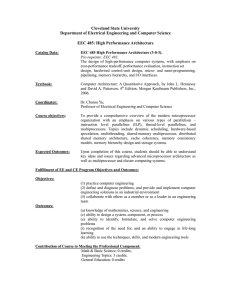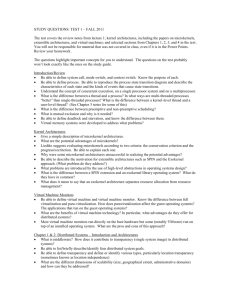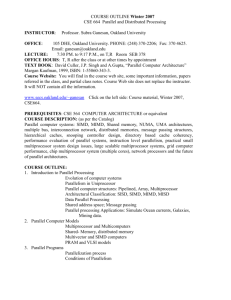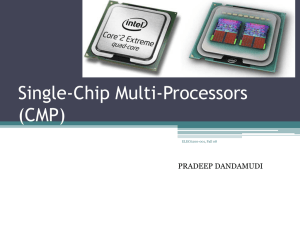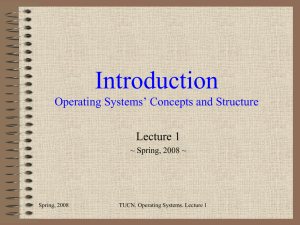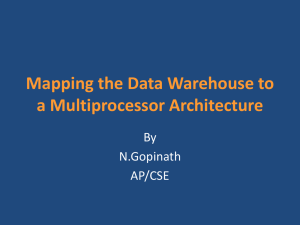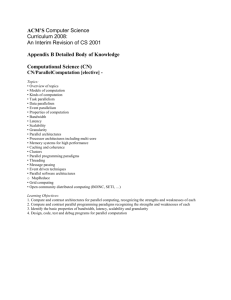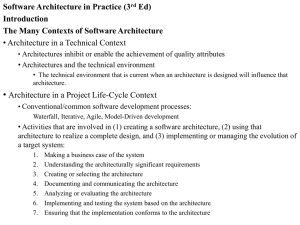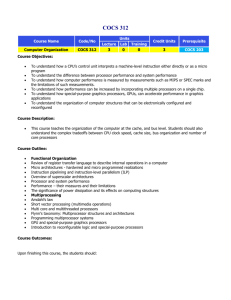Syllabus
advertisement
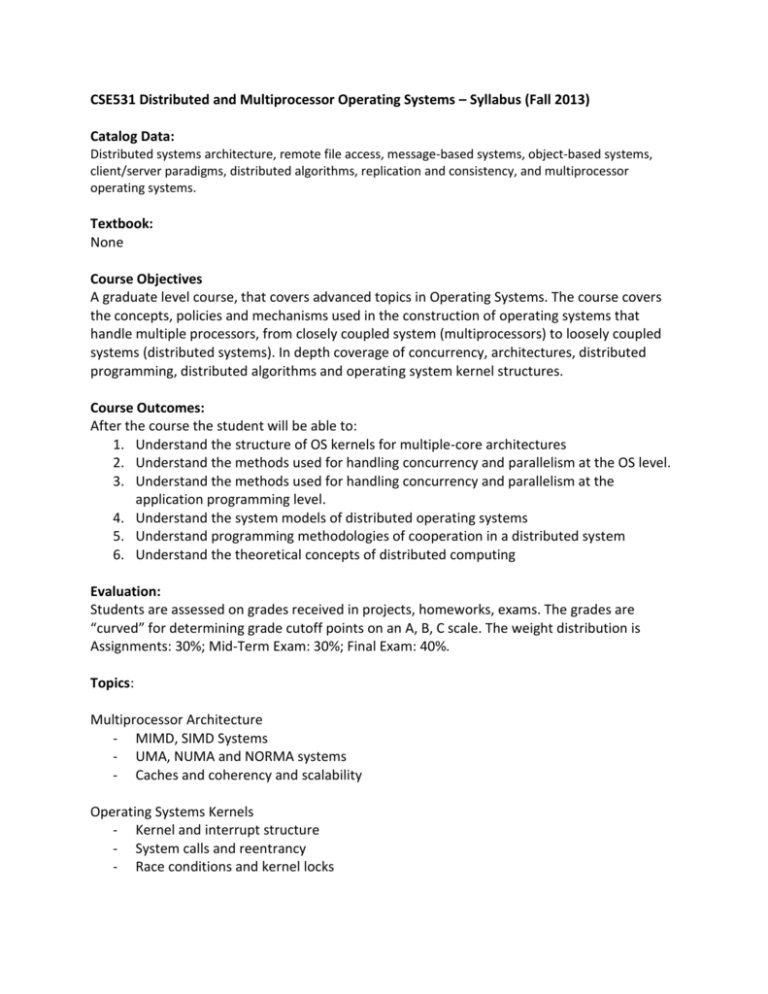
CSE531 Distributed and Multiprocessor Operating Systems – Syllabus (Fall 2013) Catalog Data: Distributed systems architecture, remote file access, message-based systems, object-based systems, client/server paradigms, distributed algorithms, replication and consistency, and multiprocessor operating systems. Textbook: None Course Objectives A graduate level course, that covers advanced topics in Operating Systems. The course covers the concepts, policies and mechanisms used in the construction of operating systems that handle multiple processors, from closely coupled system (multiprocessors) to loosely coupled systems (distributed systems). In depth coverage of concurrency, architectures, distributed programming, distributed algorithms and operating system kernel structures. Course Outcomes: After the course the student will be able to: 1. Understand the structure of OS kernels for multiple-core architectures 2. Understand the methods used for handling concurrency and parallelism at the OS level. 3. Understand the methods used for handling concurrency and parallelism at the application programming level. 4. Understand the system models of distributed operating systems 5. Understand programming methodologies of cooperation in a distributed system 6. Understand the theoretical concepts of distributed computing Evaluation: Students are assessed on grades received in projects, homeworks, exams. The grades are “curved” for determining grade cutoff points on an A, B, C scale. The weight distribution is Assignments: 30%; Mid-Term Exam: 30%; Final Exam: 40%. Topics: Multiprocessor Architecture - MIMD, SIMD Systems - UMA, NUMA and NORMA systems - Caches and coherency and scalability Operating Systems Kernels - Kernel and interrupt structure - System calls and reentrancy - Race conditions and kernel locks Concurrency and Parallelism - Locks, semaphores and Synchronization - Coroutines - P-thread programming - Classical process coordination problems and solutions - Implementing schedulers (user level threads) - Programming using Open-MP, MPI, Linda Multiprocessor Scheduling - Coscheduling, affinity scheduling, hand-off scheduling and others Distributed Operating Systems - Vision, goals and current state of the art System Models and Cooperation Architectures - Workstation model - Server model - Client Server architectures - Web model Distributed File Systems - Unix File System - NFS and other remote file systems - Theory and practice in DFS implementations Message Passing - Basic Message models - Ports, naming and programming Client Server Programming - Client Server programming - Nesting, recursion and multithreading - Nameservice - Implementing Distributed Messaging systems - Locking is distributed systems RPC and DSM - RPC Systems - DSM Systems – coherency models and release consistency Distributed Systems Theory - Distributed Knowlege (Muddy Children) - Time and event ordering - Distributed Mutual Exclusion - Distributed Snapshots Replication Management Further Information: Will be provided on the class web-site.
